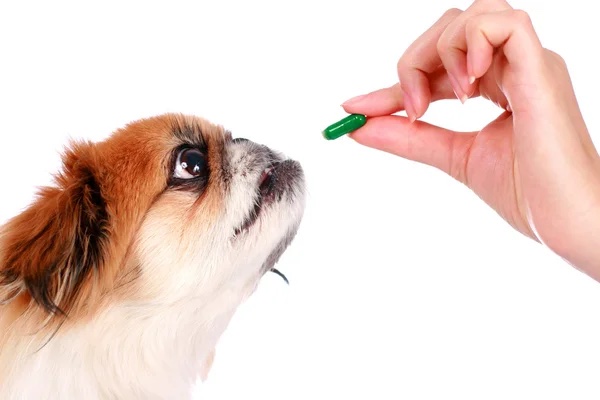
Over-The-Counter Medication: Is it Safe for My Pet?
Using over-the-counter (OTC) human medication for cats and dogs is generally not recommended without consulting a veterinarian. There are essential differences in how humans and animals absorb and metabolize drugs and these differences can make a medication made for one species toxic to another, even from one breed compared to another.
There are several important considerations to remember when it comes to using OTC medications for dogs and cats. While this article can provide general information, consulting with a veterinarian for specific guidance tailored to a pet's needs is crucial. While some medications may have similar active ingredients in both human and veterinary formulations, here are a few reasons why using OTC medications in pets can be risky:
Dosage: OTC medications are formulated for human use and are often available in concentrations and dosages that are different from those used in other animals and may be inappropriate for them. Giving the wrong dose to a pet can result in ineffective treatment or, in some cases, toxicity.
Species Differences: Humans, cats, and dogs have unique physiology and metabolism from one another, which means that the safety and efficacy of certain OTC medications may vary. Some medicines that are safe for dogs can be toxic to cats due to differences in drug metabolism and sensitivity. One example of this is acetaminophen (Tylenol), which is toxic to cats. It can cause severe liver damage if administered to a cat, yet at controlled dosages may be safe to use in dogs. However, please keep in mind that even in dogs Tylenol is not an ideal pain medication and can easily become toxic and have side effects, so contact your veterinarian for alternatives.
Potential Toxicity: Many human medications, including pain relievers, cough and cold medicines, and certain herbal supplements, can be toxic to pets. For example, non-steroidal anti-inflammatory drugs (NSAID) like ibuprofen (Advil) can harm cats and dogs, leading to gastrointestinal ulcers and kidney damage.1 In addition, many human medications include other ingredients that can be harmful to dogs. As an example, xylitol is often used as a sweetener for humans, but this ingredient is toxic to dogs and cats and can cause liver damage.2
Drug Interactions: If a pet is already on prescribed medication, certain OTC medications can interact adversely and potentially lead to adverse effects or reduce the effectiveness of the prescribed treatment. It's important to consult a veterinarian to ensure compatibility and safety. An example of this would be a pet that is on steroids for a specific condition, and an owner gives them an OTC NSAID anti-inflammatory like aspirin. This could result in gastrointestinal upset, bleeding, or ulceration.
Masking Signs: OTC medications may temporarily alleviate signs but can mask underlying health issues. Masking signs can lead to delayed diagnosis and appropriate treatment of the root cause of the problem, potentially worsening the condition over time.
If your pet requires medication, it's always best to consult a veterinarian who can provide appropriate guidance and prescribe medications tailored to your pet's needs. To ensure their well-being, they will consider many factors, such as the pet's weight, health condition, and potential drug interactions.
References
- Villar D, Buck WB, Gonzalez JM. Ibuprofen, aspirin, and acetaminophen toxicosis and treatment in dogs and cats. Vet Hum Toxicol. 1998;40(3):156-162.
- Schmid RD, Hovda LR. Acute hepatic failure in a dog after xylitol ingestion. J Med Toxicol. 2016;12:201-205.
About the author: Dr. Katy Miller works as the Director of Veterinary Services at BSM Partners. She previously served for 11 years as the Director of Dog and Cat Health and Nutrition for Mud Bay, before which she practiced general and emergency medicine for 7 years. She is also a competitive 3-day eventer, licensed falconer, and claims only 3 (2 Goldens and Mini Doxie) of their ten dogs.
Follow us on LinkedIn for the latest updates on all things happening here, at BSM Partners.
This content is the property of BSM Partners. Reproduction or retransmission or repurposing of any portion of this content is expressly prohibited without the approval of BSM Partners and is governed by the terms and conditions explained here.